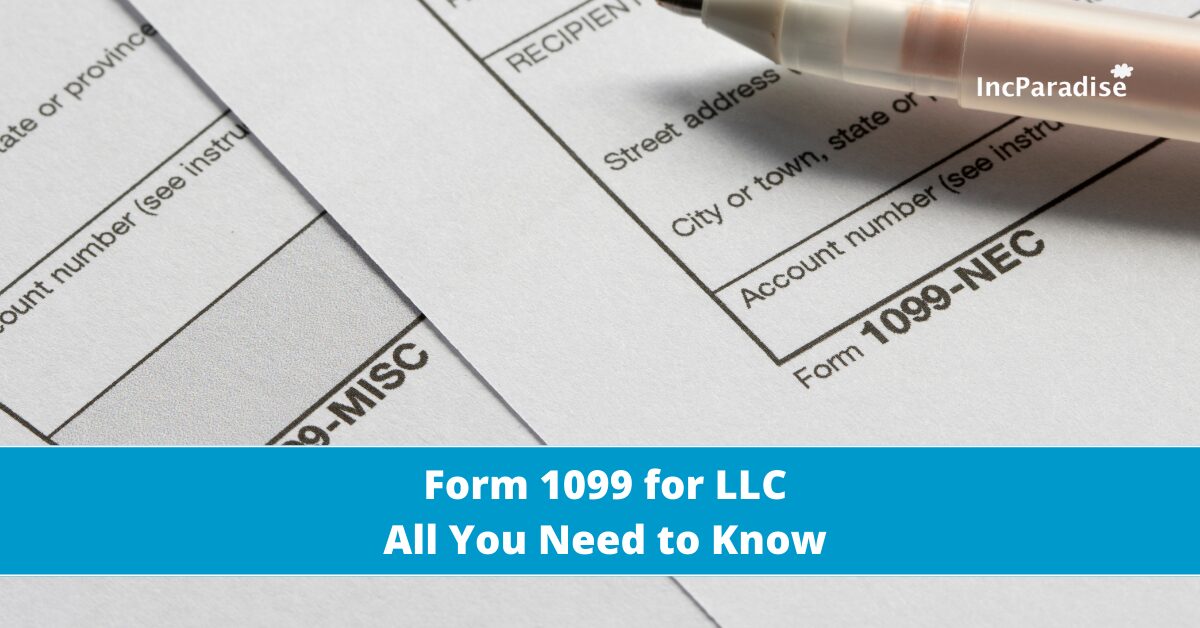Accurately valuing assets is essential for an LLC, and vehicles can be one of the most significant assets. While many small business owners use personal cars for their work, LLC members generally have two primary options for incorporating vehicles into their business: they can either buy a new car under the LLC’s name or transfer an existing vehicle following LLC procedures. Deciding how your LLC will own a vehicle is a strategic decision that can have important implications for taxes, business liability, and operations.
Therefore, making the right choice when deciding whether to buy or transfer a car to your LLC is essential. This article is for you if you are an LLC owner or have established an LLC recently and require a vehicle to carry out your daily operations. It‘s a perfect guide that will walk you through the key factors to consider when deciding on buying vs transferring a car to an LLC and help you determine when each option is the best choice.
Key Takeaways
- When you buy a car under an LLC name, the LLC is listed as the legal owner of the car.
- Liability Protection – an LLC can help shield the owner’s personal assets from certain business-related liabilities.
- Professional Image- A vehicle for the LLC creates a professional business image.
- Tax Deductions- LLCs can deduct vehicle expenses, such as fuel and maintenance, to the extent that the vehicle is used for legitimate business purposes.
- Sales tax rates and registration fees may vary depending on the state where you register your vehicle.

Basics of Owning a Vehicle Through Your LLC
Owning a vehicle through your Limited Liability Company (LLC) can provide several notable advantages for your business. Firstly, it allows for the direct utilization of the vehicle in your business operations, supporting your day-to-day activities. Secondly, because the LLC is the legal owner, it can contribute to a more professional image for your company. Perhaps most significantly, holding the vehicle under the LLC structure offers a layer of protection for your personal assets by separating them from potential legal liabilities arising from vehicle use, such as accidents. Finally, there are potential tax benefits: when the vehicle is used for business purposes, the LLC can typically deduct expenses like fuel, maintenance, insurance, and depreciation, potentially lowering your overall tax burden.
However, owning a vehicle through your LLC also comes with specific legal and administrative responsibilities. You’ll need the vehicle registration and insurance to be under the LLC’s name. It’s also a good idea to keep track of how the vehicle is used, like logging the mileage, since you might have to share that info with the government if they ask.
When is the right time to buy a car through an LLC?
If you need a vehicle primarily used for business purposes, buying a car for your LLC can be the best option for you. Here are some scenarios in which you can consider buying a car under your LLC.
Dedicated Business Vehicle
When you want a vehicle exclusively for business use, consider buying one through your LLC.
Company Drivers
If you employ drivers for various tasks in the company, such as delivery, then it is advisable to buy a car for the LLC. This can help you track business expenses accurately.
There are numerous benefits of buying a car under an LLC. You can deduct vehicle expenses such as fuel and depreciation. You can easily track business expenses, which can simplify accounting and taxation. Although option benefits exist for the LLC, they require additional administrative work and complex funding requirements.
Key Steps in the Process of Buying a Car Through an LLC
Purchasing a car through an LLC business ownership requires business owners to follow specific requirements. The following details the necessary steps.
1. Establish a Business Bank Account
Setting up a business bank account is the essential kick-off under the LLC’s name. A business must fulfill the following requirements when creating a bank account:
- Gather the necessary documents.
- Visit a service provider that provides business bank accounts. Fill out the application form.
- Provide information about your LLC.
- Make an initial deposit.
Tip! Users who need business accounts should consider Cheqly, which offers easy-to-use services designed for small companies.
2. Arrange Financing
Arranging funding stands as the next step for purchasing the car. A business loan from an LLC offers options such as utilizing line-of-business credit or banking funds or establishing a business lease agreement to support the purchase of a car through an LLC.
3. Make the Right Vehicle Choice
Selecting an appropriate vehicle is one of the key decisions in operating an LLC. Your LLC needs a suitable vehicle, which requires assessment of its use in business activities and its resale value, along with fuel efficiency calculations, storage capacities, and a cost analysis of maintenance needed.
4. Officially Register the Vehicle
Any purchased vehicle requires proper LLC registration after the transaction is complete. The vehicle registration process begins by contacting your state DMV to fill out the registration form, submit your LLC paperwork, and pay the official fee.
5. Obtain Car Insurance
Securing appropriate vehicle insurance is a crucial final step. In most cases, a commercial auto insurance policy is necessary when a vehicle is owned by an LLC and used for business purposes. However, the specific insurance requirements can vary depending on state laws and the nature of your business. Contact several insurance providers to compare coverage options and rates to find the best policy for your business needs. Be sure to discuss the specifics of your vehicle use with the insurer to ensure adequate coverage.
When is it the right move to transfer a car to an LLC?
If you’re already using a personal vehicle for business activities, transferring it to the LLC is worth considering. Transferring may provide benefits, such as a clearer separation of business and personal finances, and potentially streamline expense tracking for tax purposes. However, it’s essential to carefully evaluate all implications, including potential tax consequences, the impact on insurance premiums (which may increase with a commercial policy), and compliance with state and local regulations. Here are a few scenarios in which transferring a car is the best option.
Extensive Use of Personal Vehicle for Business
Conducting business activities through an LLC becomes more beneficial for drivers whose personal vehicle meets extensive business needs. Tracking business expenses and maximizing tax deductions becomes more formalized after making such a transfer.
Separation of Business and Personal Liability
When you transfer your vehicle to the LLC, you can separate your personal assets from potential liabilities that may arise from using the vehicle for business purposes.
Similar to buying a car, you can deduct business expenses from transferring the car to an LLC. You can designate the vehicle for business use and get an additional layer of liability protection. However, the transfer process might be complex, and insurance premiums may be higher for commercial auto insurance.
Steps to Transfer Personal Vehicle Ownership to Your LLC
Read on to find the procedure for moving a personal vehicle into my LLC ownership.
1. Evaluate and Plan
Evaluation for planning must be completed before starting the transfer procedure. Consultations with tax advisors, insurance providers, and lenders offer knowledge about the local regulations. State regulations compliance, together with legal safety, is possible through this requirement.
2. Prepare Necessary Documentation
When completing a vehicle ownership transfer, you’ll generally need to provide standard documentation such as the original vehicle title, a bill of sale, and a title transfer form together with the Employer Identification Number (EIN) from the LLC. Specific requirements can vary by state, so it’s essential to check with your local Department of Motor Vehicles (DMV) for a complete list of necessary documents. While detailed records of vehicle usage and maintenance are good business practice, they are not typically required for the title transfer process itself.
3. Complete the Title Transfer
The steps for transferring a title are as follows.
- Contact the state’s Department of Motor Vehicles (DMV)
- Fill out the Title Transfer Form
- Submit the required documents
- Pay the applicable fees
4. Update Registration and Insurance
A vehicle transfer needs to be completed before registering as an LLC entity and obtaining commercial insurance. The process of updating your registration requires you to visit your state DMV website, while acquiring insurance becomes possible with numerous insurance providers.
Conclusion: Which Option Is Right for Your Business?
If the vehicle is primarily for business purposes, consider purchasing it under your LLC. However, if you currently use your personal car for business, you may benefit from transferring its ownership to the LLC. While both options increase the administrative responsibilities of the LLC, transferring ownership can complicate the title transfer process. Before making a decision, it is important to consult a tax or legal professional. They have the expertise and understanding of the regulatory framework to assist you in buying or transferring a vehicle through your LLC.
IncParadise & Cheqly Team Up for Comprehensive Business Solutions
Starting a new business or managing an existing one is easier with a dedicated bank account, which offers many benefits. Today’s online financial services allow you to conveniently set up an account digitally through our partner. Digital banking simplifies and speeds up financial management for businesses.
IncParadise, a leader in business registration in the U.S., has partnered with Cheqly. This collaboration allows clients to open business accounts remotely and access services for forming and managing Limited Liability Companies (LLCs) and Corporations. Whether using Cheqly or IncParadise, you can maximize the benefits of our partnership.








